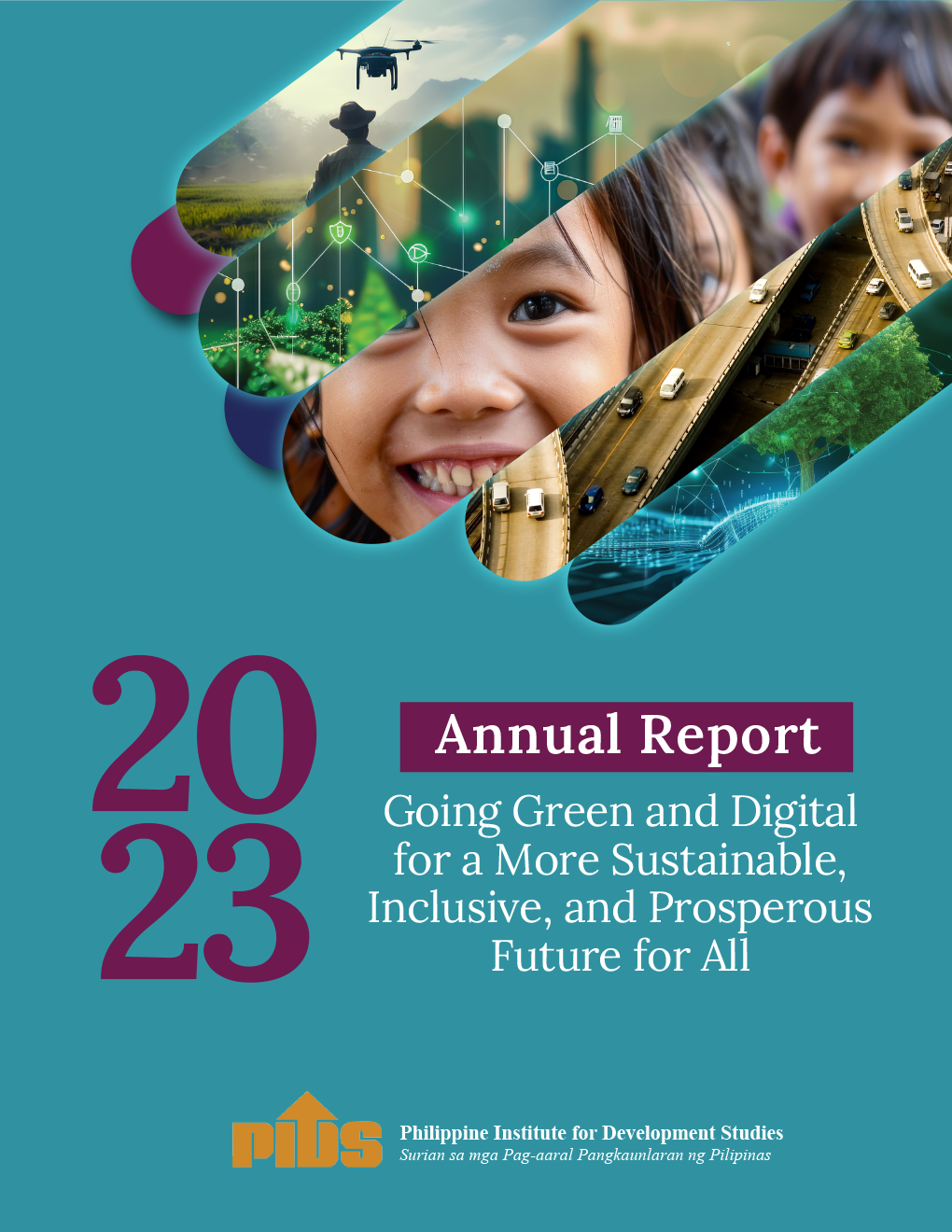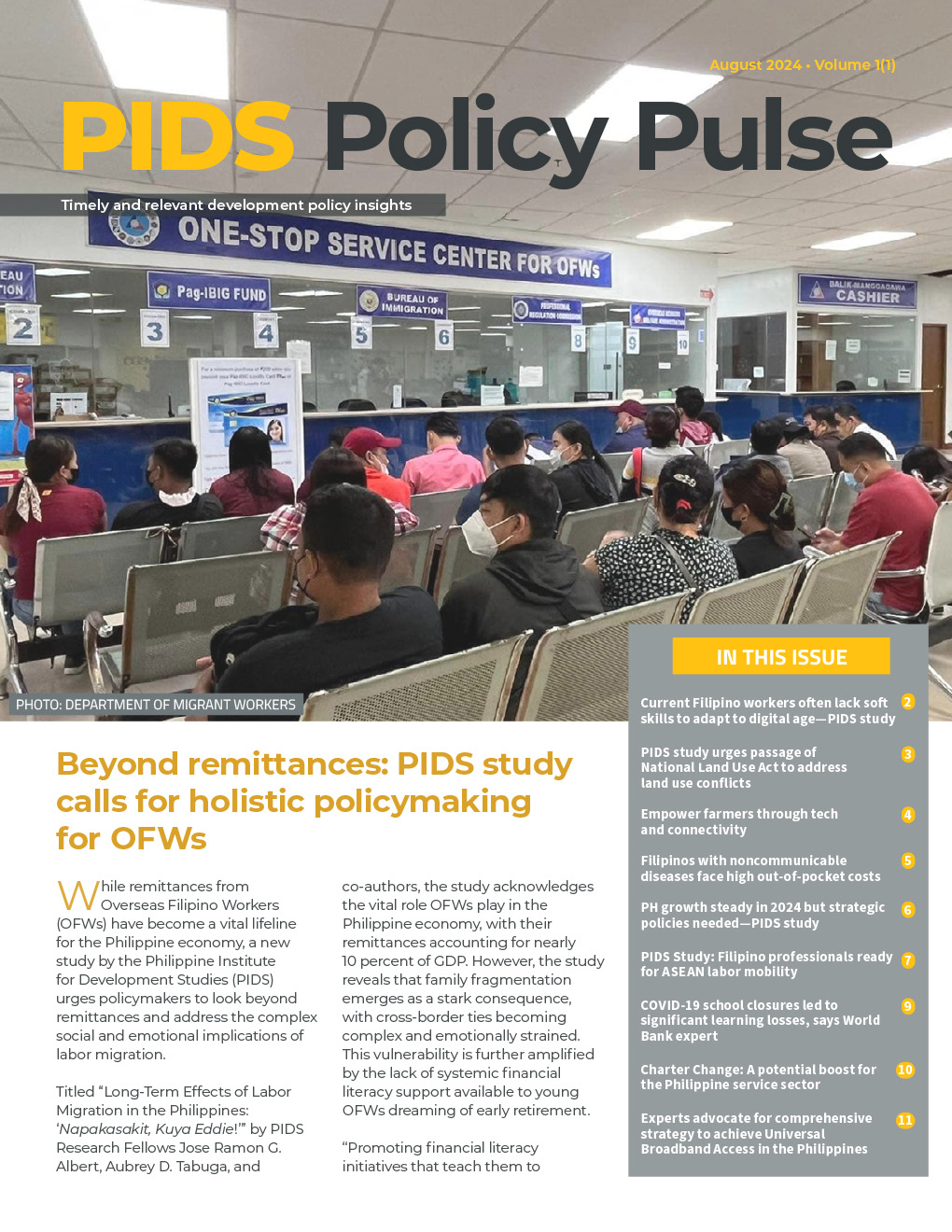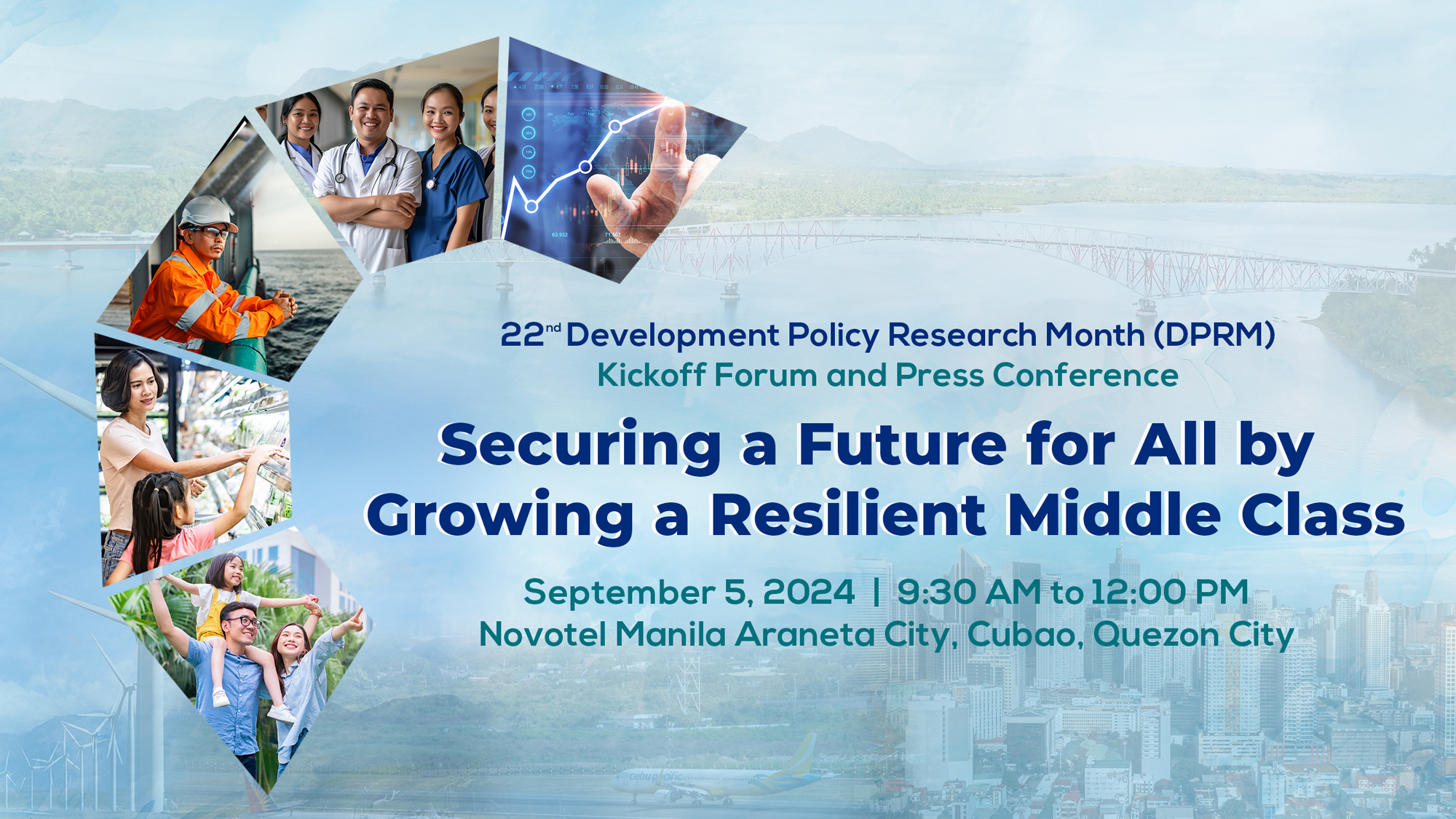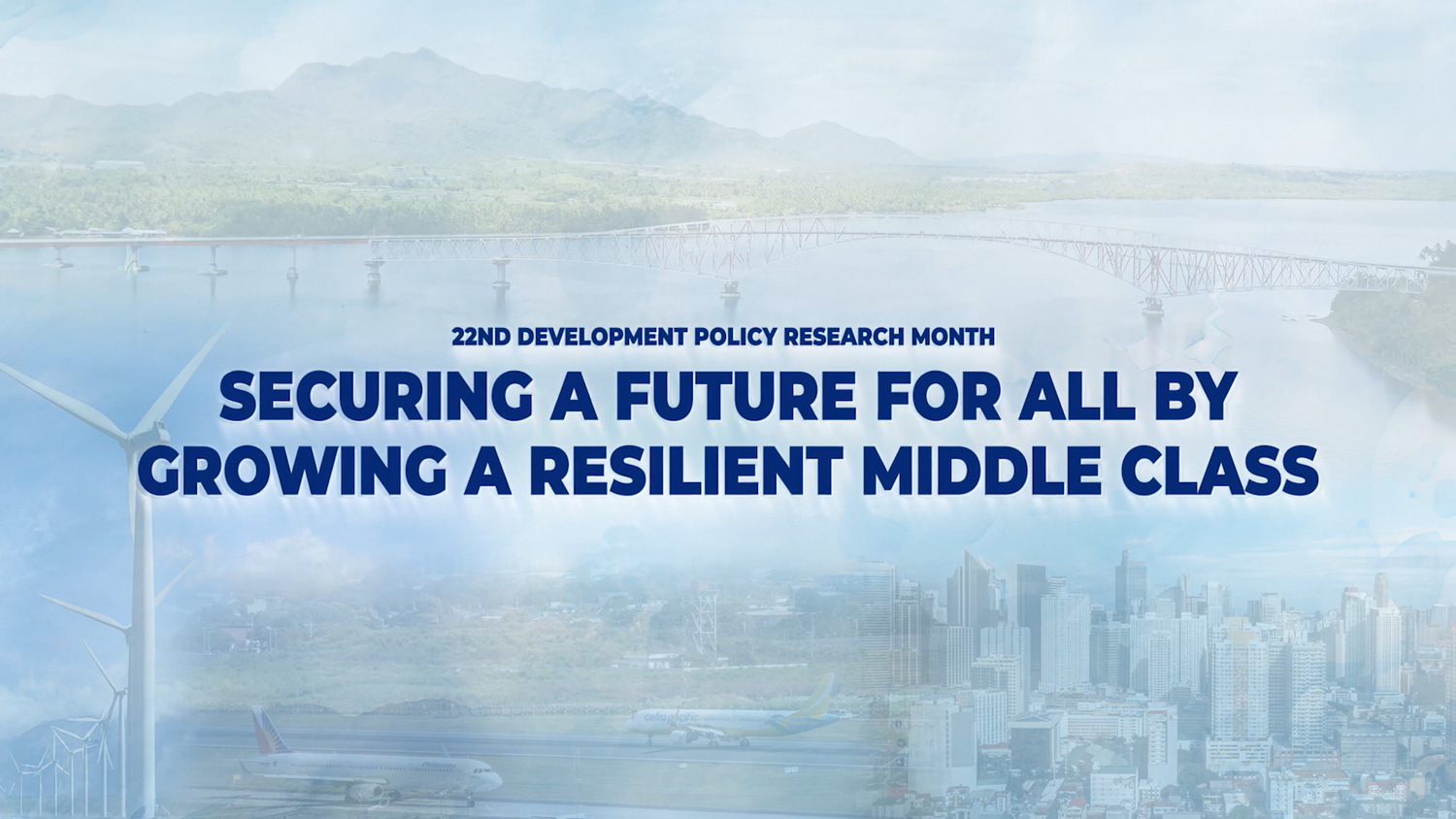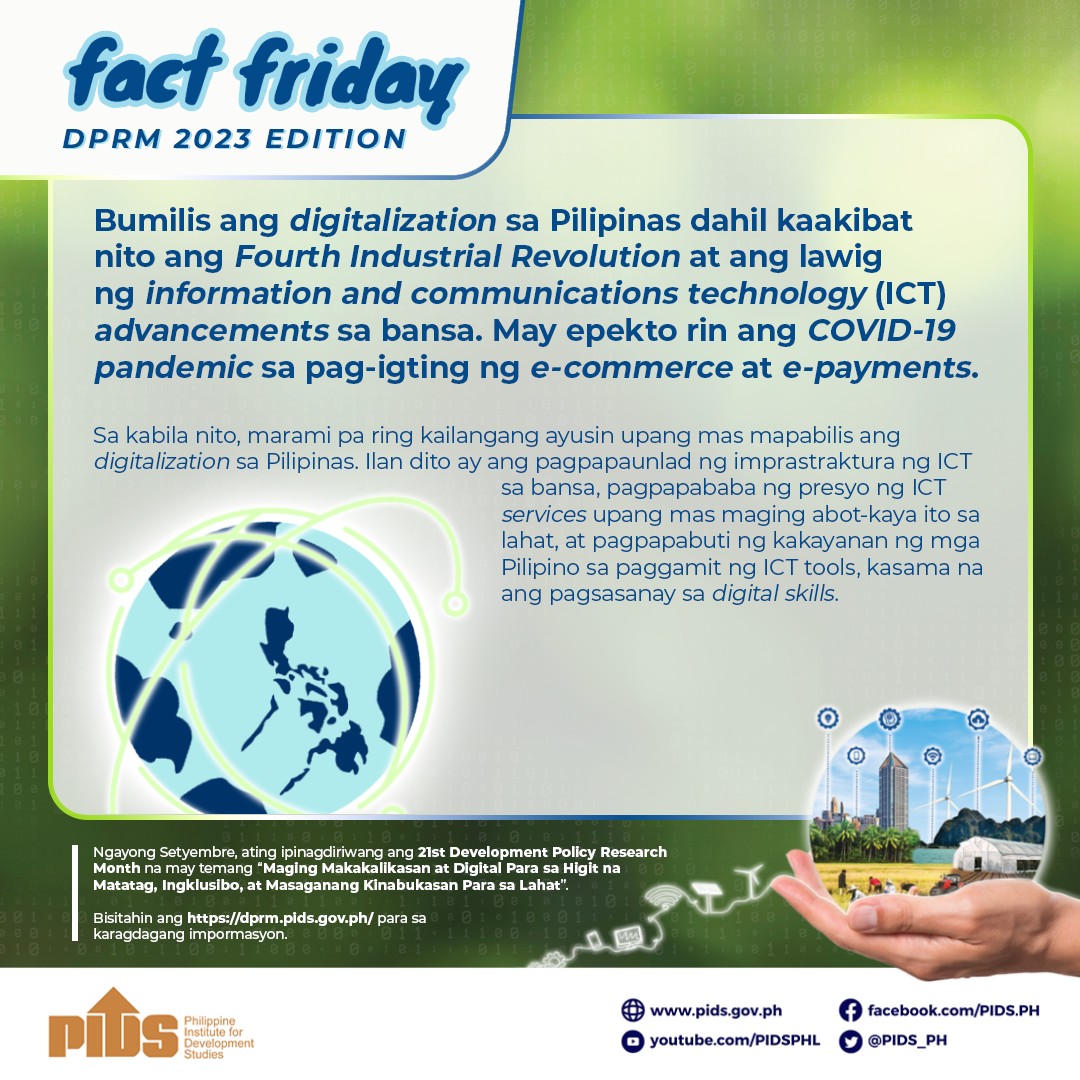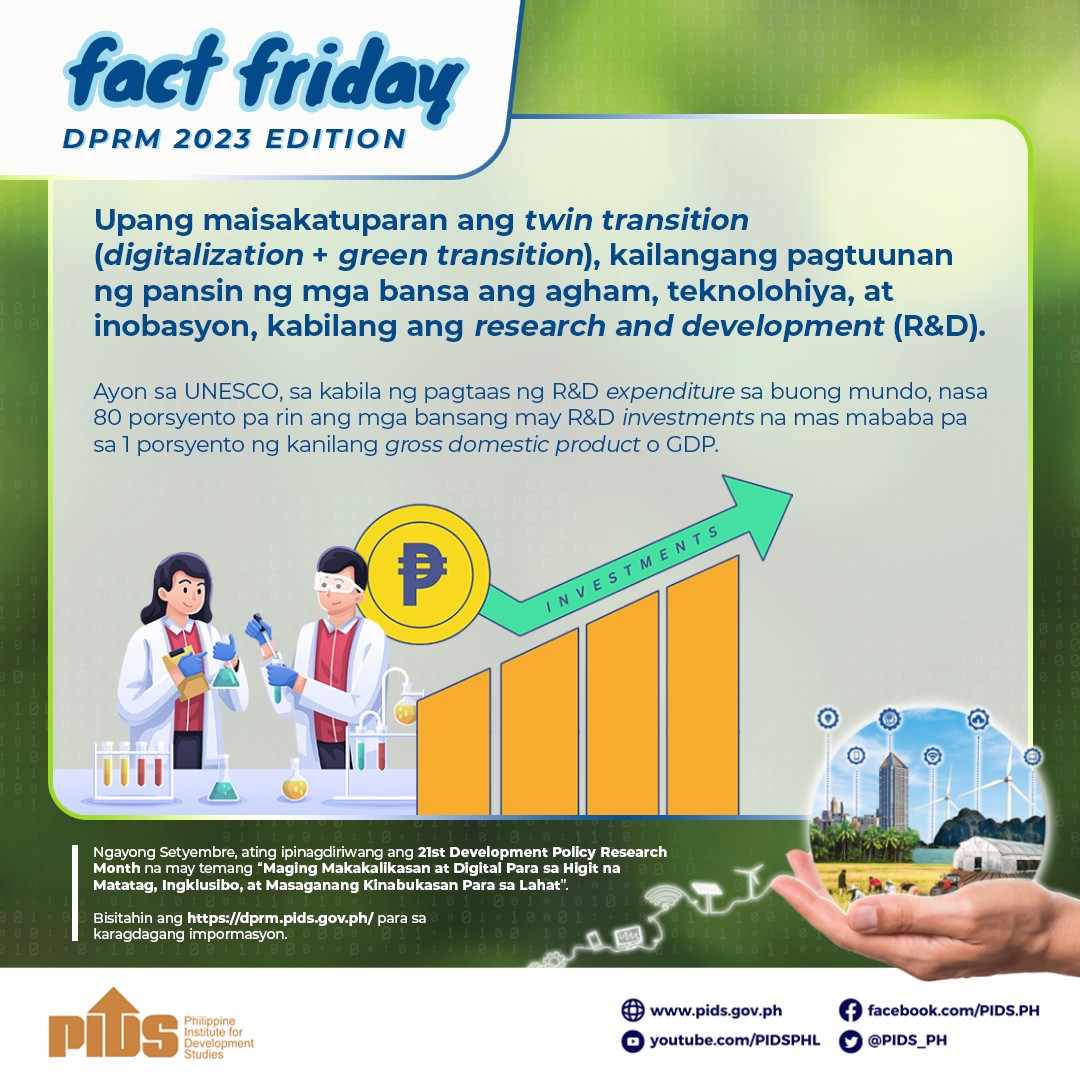STATE think-tank Philippine Institute for Development Studies (Pids) and Mindanao Development Authority (Minda) are set to start a new development partnership this September, a most opportune time as the Philippine bureaucracy celebrates the 13th Development Policy Research Month (DPRM).
On September 4, Pids president Dr. Gilberto Llanto and Secretary Lualhati Antonino, Minda chair, will sign an agreement that will promote policy research and knowledge sharing in support of Mindanao's development needs, facilitate access to policy studies and materials produced by higher education institutions (HEIs) in Mindanao, and establish the Mindanao Knowledge Research and Policy Center (MKRPC).
"This partnership has a lot of potential in creating synergies for the development of Mindanao. Given the Institute's limited financial, human, and technical resources, we cannot cover the entire Philippines to effectively carry out our mandate. We need to multiply ourselves. We see Minda as an excellent partner in promoting evidence-based policymaking at the local level and in increasing the relevance of our policy studies," Llanto said.
The signing ceremony will be held at the Waterfront Insular Hotel in Davao City and will also include a public presentation of the Mindanao Development Report and soft launch of the MKRPC whose components include a knowledge portal of development research and policy studies conducted by government agencies and HEIs in Mindanao.
The idea of developing a knowledge portal was inspired by the Pids' SocioEconomic Research Portal for the Philippines (Serp-P) project, an online database of socioeconomic studies produced by Pids and 52 member-institutions comprising the Serp-P Network that includes Minda.
The Pids, through its Serp-P team composed of Dr. Sheila Siar and Mr. Mark Vin Aranas, will help Minda set up the MKRPC knowledge portal. An orientation on open access and how to develop a Swep-P-like portal for Mindanao will be conducted by Siar and Aranas on September 3.
This year's DPRM theme "Effective Regulations for Sustainable Growth" is aimed at giving emphasis on regulatory issues and the critical need to build a formal regulatory management system that is backed by research evidence and systematic assessment of proposed policies and regulations before they are implemented. Resource speakers include Llanto, Antonio, and heads of local regulatory bodies in Davao City. (Sun.Star Davao)

